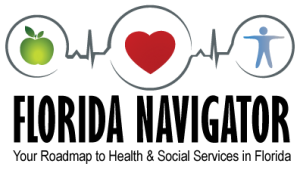· Pain or pressure in chest
· Pain or pressure in upper
stomach
· Trouble breathing or shortness
of breath
· Loss of consciousness or fainting
· Sudden numbness or weakness
· Confusion, change in mental state
· Sudden change in vision
· Trouble speaking
· Sudden severe headache (with no history of migraines)
· Serious injury to the body
· Uncontrolled bleeding
· Major broken bones
· Seizures
· Severe reaction to an insect bite/sting, medication, or food
· Suicidal thoughts
by Robert Goodman, MSW
Medicare covers home health care services for someone meeting these conditions:
- Your doctor must decide that you need medical care at home, and make a plan for your care at home.
- You must need intermittent skilled nursing care, physical therapy, speech-language therapy, or to continue occupational therapy.
- The home health agency caring for you must be approved by the Medicare
- You must be homebound, or normally unable to leave home without help.
If you meet all four of the conditions above, Medicare will cover the following types of home health care:
· Skilled nursing care
· Home health aide services
· Physical therapy, speech-language therapy, and occupational therapy
· Medical social services
· Certain medical supplies
· Durable medical equipment
· Medicare does not cover homemaker services like shopping, cleaning, and laundry; and
· Personal care given by home health aides like bathing, dressing, and using the bathroom when this is the only care you need.
There are several types of home care providers. Only Medicare approved home health care agencies are covered by Medicare. Private pay services include nurse registries and companion services. There are some private pay home health agencies that provide the services listed above.
Companion/Homemaker: Services include companionship, errands, escorts, meal preparation, and homemaking.
Home Health Agency: Recruits, screens, and hires their staff as employees. Services include home health care, skilled nursing, physical/occupational/speech therapy, companions, homemakers. May provide 24-hour live-in aides.
Nurse Registry: Recruits, screens, and refers aides, who are independent contractors, to clients. Services include nurses, respite care, home health aides, companions, homemakers, and 24-hour live-in aides.
There are many different types of personnel who may be handling your care. Besides therapists and social workers there are different types of home care workers who may come into your home.
Companion/Homemaker May do the following: Prepares/serves meals, does housekeeping, and accompany client on errands/trips. The Companion/Homemaker must have some training in topics related to human development and interpersonal relationships, nutrition, marketing, food storage, use of equipment and supplies, planning and organizing of household tasks, and principles of cleanliness and safety.
Home Health Aide (HHA) In addition to the services provided by a Companion/Homemaker, a HHA may provide “hands on” personal care, which includes assistance in the activities of daily living, such as bathing, grooming, dressing, personal hygiene, eating, and assistance in physical transfer and ambulation. Some HHA’s can be trained to supervise medication. Most HHA’s have a high school diploma, although it is not required. To work for a Medicare or Medicaid home health agency, a HHA must complete 75+ hours of training or successfully complete a competency evaluation given by the home health agency.
Certified Nursing Assistants (CNA) provides the same types of services as the Home Health Aide, but the CNA is certified by the state, a high school or G.E.D is required, and typically receives a higher rate of pay. The programs are 6-12 weeks in length and include “hands-on” caregiving experience.
Licensed Practical Nurse (LPN) provides services such as monitoring vital signs, preparing and giving injections, enemas, help in the evaluation of the needs of the client, and supervising nursing assistants and aides. LPN’s can also be involved in teaching and training family members in simple nursing tasks. LPN’s must go through a State-approved Nursing Program.
Registered Nurse (RN) works to promote health, prevent illness, educate patients and families, and develop/manage nursing care plans. RN’s are educated in the science and theory behind the care they are administering and supervising. The RN assessment involves a more holistic approach to evaluating the patient, making sure both their physical and psychological needs are being addressed.
For more information log onto www.medicare.com/hhcompare
Professional healthcare workers (home health aides, companions, homemakers) can be hired through a licensed home health care agency or these services can be obtained from independent providers who are usually called independent contractors.
Independent contractors work for themselves are not employed by a licensed home health agency. They do not have to meet the same standards that licensed agency employees must comply with.
The responsibility of recruiting, hiring, supervising, counseling, and training belongs to the client or client’s family.


